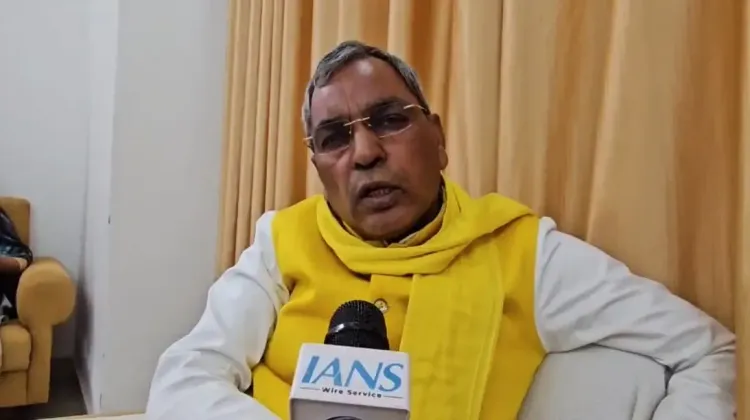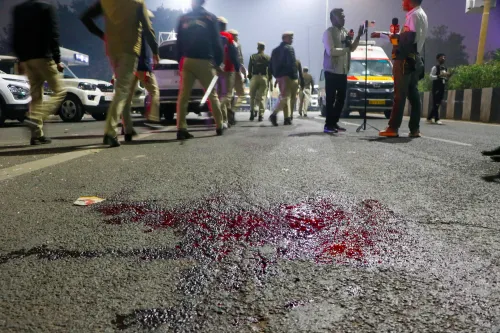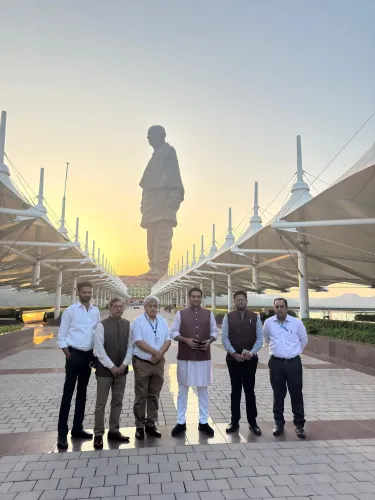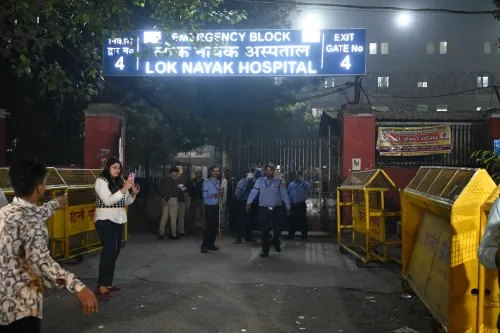Rajbhar Accuses Opposition of Manipulating Muslim Illiteracy for Vote Politics Amidst Waqf Bill Controversy

Synopsis
Key Takeaways
- Waqf (Amendment) Bill introduced in Lok Sabha.
- Rajbhar criticizes the Opposition for vote bank politics.
- Bill allows appeals to higher courts regarding Waqf Tribunal decisions.
- New provisions for women and non-Muslims in Waqf Board.
- Rijiju highlights extensive public consultation for the Bill.
Lucknow, April 2 (NationPress) The Waqf (Amendment) Bill was presented in the Lok Sabha on Wednesday by Parliamentary Affairs Minister Kiren Rijiju, leading to significant opposition from various political leaders. In reaction, Uttar Pradesh Cabinet Minister and President of the Suheldev Bharatiya Samaj Party (SBSP), OP Rajbhar, condemned the Opposition, alleging they manipulate the illiteracy among Muslims for their vote bank politics.
In an interview with IANS, OP Rajbhar remarked, "This is all about vote politics. They are afraid of losing Muslim votes, which is why they are against the Bill. The public needs to know the truth. It doesn’t matter if they are from the Congress or the Samajwadi Party; the facts must be shared. There is a significant level of illiteracy among Muslims, which the Congress, SP, and BSP take advantage of by fostering hatred.
Describing the provisions of the Bill, Rajbhar pointed out, "The amendment permits individuals with private property to approach higher courts—whether it’s the civil court or the High Court—if they disagree with the Waqf Tribunal’s decision. This has raised some objections.
Moreover, the previous Bill had excluded both women and non-Muslims from the Waqf Board committee. The revised Bill introduces provisions for two representatives for women and two for non-Muslim religious communities to guarantee equal rights and diverse representation.
Simultaneously, Union Minister Kiren Rijiju criticized the former UPA government for de-notifying 123 properties and transferring them to the Delhi Waqf Board.
Defending the need for the amendment, Rijiju contended that without this legislation, even premises of Parliament could have been claimed as Waqf property.
Amidst protests from the Opposition, Rijiju introduced the Waqf (Amendment) Bill, 2025 and the Mussalman Waqf (Repeal) Bill 2025 in the Lok Sabha.
While addressing the House, he expressed his appreciation to the members of the Joint Parliamentary Committee (JPC) for their extensive consultations, stating that the level of discussion was unprecedented in the history of Indian Parliament.
Rijiju also announced that the government had reviewed over 97 lakh petitions—gathered through both online and physical submissions, MoUs, suggestions, and requests—setting a record for any Bill in India’s legislative history.
In addition, 284 delegations, comprising stakeholders from various communities, representatives from 25 state governments and union territories, legal experts, and religious leaders, provided their valuable feedback.









